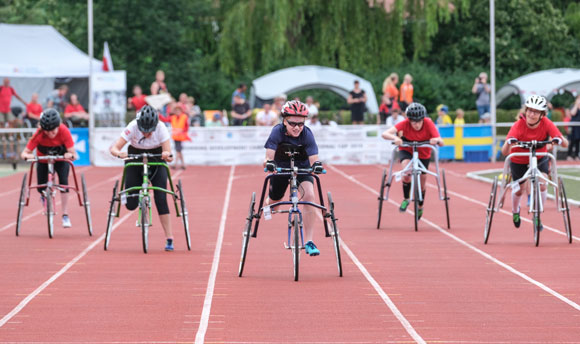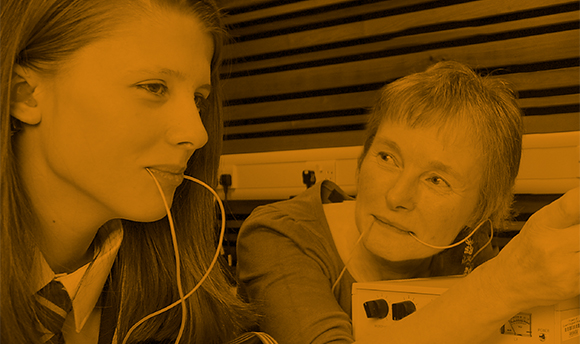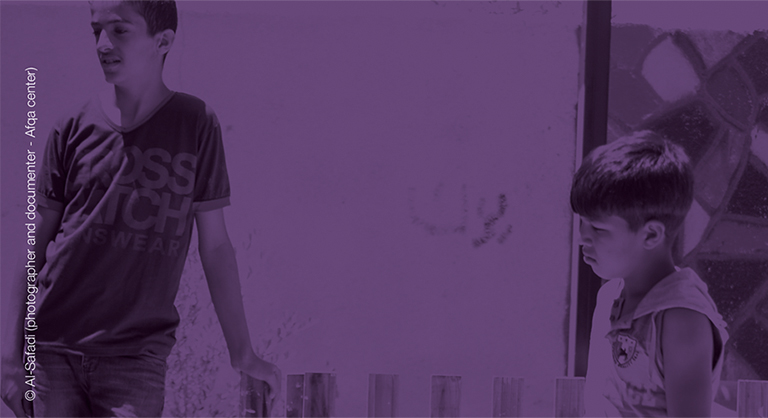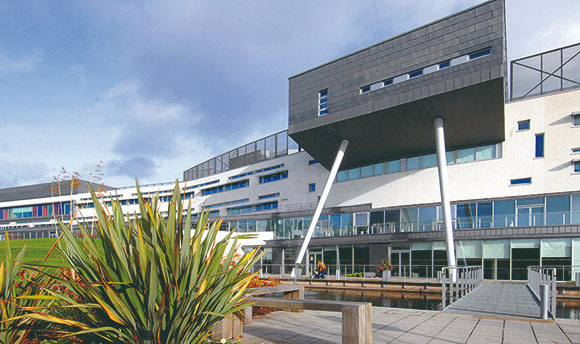Annual Report (2021) to University Court - QMU Compliance with the Concordat to Support the Career Development of Researchers
In October 2019 QMU publicly declared its commitment to the new UK Concordat to Support the Career Development of Researchers. We were one of the first five universities in the UK and the first post 92 institution to be awarded the 10 Year HR Excellence in Research in Award by the European Commission in December 2020, following international peer review and approval of our Researcher Development Concordat Action Plan 2020-2022. The revised 2019 Concordat recognised the critical role of research and innovation in delivering the UK’s ambitious economic and industrial strategies, and aims to set the gold standard in researcher development. The Concordat resets the expectations and provides a fresh impetus to drive the agenda forward through systemic change, share good practice and ensure that the highest standards are consistently applied throughout the UK.
Concordat Principles
The Concordat has three defining principles covering Environment and Culture, Employment, Professional and Career Development. These responsibilities are cast as obligations, given the pressing need to improve standards and to ensure a consistency of experience for our researchers across the UK. It is also recognised that some of the areas of most concern to researchers, such as the prevalence of fixed-term contracts and enforced mobility, will require long term systemic changes, which can only be realised through collective action across stakeholders.
Signatory Responsibilities
In signing up to the Concordat, we have committed to the following responsibilities:
|
Responsibility |
Status at November 2021 |
|---|---|
|
Raise the visibility of the Concordat and champion its Principles within their organisation at all levels. |
|
|
Identify a senior manager champion and associated group with relevant representation from across the organisation with responsibility for annual review and reporting on progress. |
|
|
Ensure researchers are formally represented in developing and monitoring organisational efforts to implement the Concordat Principles. |
|
|
Undertake a gap analysis to compare their policies and practice against the Concordat Principles. |
|
|
Draw up and publish an action plan within a year of signing up to the Concordat. |
|
|
Set up processes for systematically and regularly gathering the views of the researchers they fund or employ, to inform and improve the organisation’s approach to and progress on implementing the Concordat. |
|
|
Produce an annual report to their governing body or equivalent authority, which includes their strategic objectives, measures of success, implementation plan and progress, which is subsequently publicly available. |
|
QMU Researcher Development Concordat Action Plan 2020-2022
Our Action Plan details our strategic objectives, measures of success and implementation plan.Progress (September 2020-October 2021) is reported as follows and mapped across Concordat Principles
Researcher Development Concordat Principle 1 – Environment and Culture
- Established and embedded an institutional Concordat for Researcher Development Working Group,(CRDWG) chaired by Dr Marietta van der Linden, Senior Research Fellow, Physiotherapy and comprising nominated researchers from across QMU including Contract Research Staff (CRS). The work of CRDWG is underpinned by a strong spirit of co-ownership and co-creation.Production of a revised and extended Welcome to Research&KE@ QMU Booklet for new staff and to support researcher recruitment.
- New Concordat web and intranet pages
- CRS mailing list established for the latest research opportunities and developments.
- Six-monthly meetings between CRS and the Deputy Principal and specific opportunities to input into the strategic planning process.
- Dedicated researcher wellbeing support offered through: a QMU Health Resilient Researcher Course(11 November 2021) in partnership with the Universities of Stirling, Dundee and St Andrews; and Regaining your Research Mojo being delivered with Edinburgh Napier University (4 workshops November –December 2021).
- Launch of a QMU Strategic Working Papers Series This aims to create a space for innovative thinking on collaborative, interdisciplinary and co-produced research to emerge and take shape.
- Monthly RKEDU Newsletter launched with a synopsis of research and KE opportunities – shared with CRS and legacy researchers.
- Opportunities for a CRS representative to sit on all Research and KE Working Groups.Promotion of CRS sessions on REF 2021 submission strategy – specifically understanding routes to research independence, building an impact portfolio and managing CVs in the context of REF.
- Launch of a new KE Concordat Working Group and Action Plan aligned to the Concordat to Support the Career Development of Researchers principles. This group is chaired by the Principal and has nominated CRS membership.
- Appointment of the first QMU Entrepreneur in Residence to support researchers in all aspects of innovation and to help address gender disparity in entrepreneurship/spin-out.
- Commitment to a new programme of work to support training and embed the principles of the Concordat to Support Research Integrity.
Researcher Development Concordat Principle 2 – Employment
- Review and launch of a CRS Induction Plan and New Starter Questionnaire.
- Researcher wellbeing specifically featured as part of the new CRS induction.
- Guidance issued by Finance on the flexibility of funders to incorporate career building opportunities for CRS.
- Launch of a new QMU Legacy Researcher Policy and database of Legacy Researchers.
- Fixed-Term and Open-Ended Contracts Policy now embedded.
- Revised Academic Workload Model launched. Further online training to be provided to ensure
- consistency and transparency in the application of the model.
- Line Manager e-learning toolkit launched. Data on the uptake of this training to be provided.
- Ongoing HR policy review being held in consultation with CRS Staff. HR Working Group to be established to focus on high importance policy actions.
- Ongoing review of the University Performance Enhancements Review (PER) process.
Researcher Development Concordat Principle 3 – Professional and Career Development
- QMU publically declared its commitment to 10 days professional development training (pro rata) for researchers to develop their professional competencies and gain experience to support their future career.
- Launch of a new QMU Researcher Development Training Programme 2021/22 linked to PER and a new HR Training Matrix
- Launch of the cross-institutional Teaching, Research and Academic Mentoring Scheme (TRAMS) led by the Universities of Dundee and St Andrews and an ongoing commitment to collaborative mentoring with Edinburgh Napier University.
- Two protected places for CRS on the Advance HE Aurora leadership development programme.
- Successful delivery in early 2021 of a COVID-19 rapid response mentoring scheme for CRS, in
- collaboration with Edinburgh Napier University. External evaluation reported positive feedback. A
- relaunch of this scheme is scheduled for December 2021.
- Culture, Employment and Development in Academic Research Survey (CEDARS) - QMU participation in pilot year 2020 and full survey in 2021. Ongoing institutional commitment to this national biennial benchmarking exercise, providing valuable data for measuring progress in the implementation of QMU’s Action Plan 2020-22 and also crucial to achieving and maintaining the HR Excellence in Research Award which is reported in REF 2021 Units of Assessment and in our institutional environment statements. An independent external evaluation by Vitae on QMU data against UK aggregate data was commissioned in 2020 and in 2021 (due November) and findings were reported and shared openly and transparently within QMU.
- Ongoing participation in the Edinburgh Beltane Public Engagement Network. QMU researcher engaged with European Researchers Night - EXPLORATHON (9 events) and 2 researchers secured competitive spaces at Beltane SPARKS, a collaborative researcher development sandpit event across the partner institutions.
- A priority area for the QMU KE Concordat Action Plan is enhanced institutional support for Public Sector Tendering. This is in response to feedback from researchers and to support income generation.
- Ongoing investment in annual QMU Innovation Fellowships.
- Participation in the Scottish Parliament Academic Network (SPAN) and reviewing the sector work plan post lockdown with a new engagement approach for University partners. In 2021/22 the key commitment is to relaunch Scottish Parliament Fellowships.
- QMU’s on-campus Business Gateway is running a course for CRS on establishing yourself as a freelancer or independent research consultant on 18 January 2022.
- Researcher Career Development sessions are included in the new QMU Researcher Development Training Programme 2021/22 - Planning and designing your research career on 1 June 2022 and Careers beyond research: applying your skills outside academia 1 June 2022.
- In collaboration with the University of Stirling, over a two week period in late November 2021, we will be offering a targeted, cohort building session on Being Strategic in your Research Career. This will explore postdoctoral research career development and movement between academia and other sectors.
Participation in the Culture, Employment and Development in Academic Research Survey 2021 (CEDARS)
|
CEDARS Data – QMU and UK Aggregate Data Comparison |
QMU CEDARS 2020 |
UK data 2020 |
QMU CEDARS 2021 |
UK data 2021 |
QMU Action in response to CEDARS Feedback |
|---|---|---|---|---|---|
|
Aware of the Concordat to Support the Career Development of Researchers (but may not know the detail) |
|
||||
|
Agree |
78.1% | 59.8% | 86.3% | 59.4% |
|
|
Aware of the European HR Excellence in Research Award. |
|
||||
|
Agree |
56.1% | 46.1% | 58.9% | 44.4% |
|
Priority Next Stage Actions – November 2021 Onwards
- Increased proactive and transparent use of CEDARS data to improve our research culture and address challenges. This includes agreeing a high level set of measures from CEDARS data for each theme of the Concordat through which we track progress and report to key institutional groups/via the strategic planning process.
- Work with CRS to maximise opportunities for co-creation in the implementation of the concordat.
- Launch of new CRS HR intranet site to include all key information regarding policies and procedures, training and development, support and wellbeing.
- Establishment of HR working groups focusing on training and policy review.
- Training statistics to be provided to CRDWG on identified key training and professional development needs on an ongoing basis.
- Introduction of a Starting Salaries Policy to provide guidance to recruiting managers on appointment salaries ensuring a consistent and equitable approach across the University.
- Implementation of a new Recruitment and Selection Strategy.
- Delivery of a tailored session to CRS in the Institute for Global Health and Development on “All you ever wanted to know about research careers and staff development but were afraid to ask”.
- New QMU policies/training to support research integrity, research metrics and safeguarding.
- Implementation of the new Self-Assessment Tool for the Concordat to Support Research Integrity.
- Launch of the new QMU Research and KE Strategy 2022-27 underpinned by priority themes of Culture People and Impact.
- Explore the launch of an ECR Academy with Edinburgh Napier University and possible internal or collaborative peer review good practice exchange.
- Refresh of QMU Research Centre membership criteria and ECR definitions.
- Explore implementation of Narrative CVs/Resume for Researchers.
- Increase engagement with the Edinburgh Beltane Public Engagement Network via a 10 Year relaunch and new emphasis on co-production. A collaborative “Rethinking our Space Beltane Sandpit” is planned for February 2022. Led by the University of Edinburgh, this is being progressed with the Beltane partners looking at the UK Research and Innovation (UKRI) place-based agenda and potential future funding opportunities from the Strength in Places Fund for Hubs for place-based engagement.
- Maximise synergies with KE Concordat Working Group including an Academic Engagement Strategy for the City and Region Deal.
- Progress plans for a Women’s Business Centre as part of the new Innovation Hub.
Challenges
- Rolling out a QMU Special projects list providing short term employment opportunities to enhance translational skill to support contract research staff bridging.
- Progressing opportunities/collaboration in Data Skills/AI.
-
Sector-wide equality and diversity data on KE and innovation.
-
KE Career Pathways for CRS
November 2021








